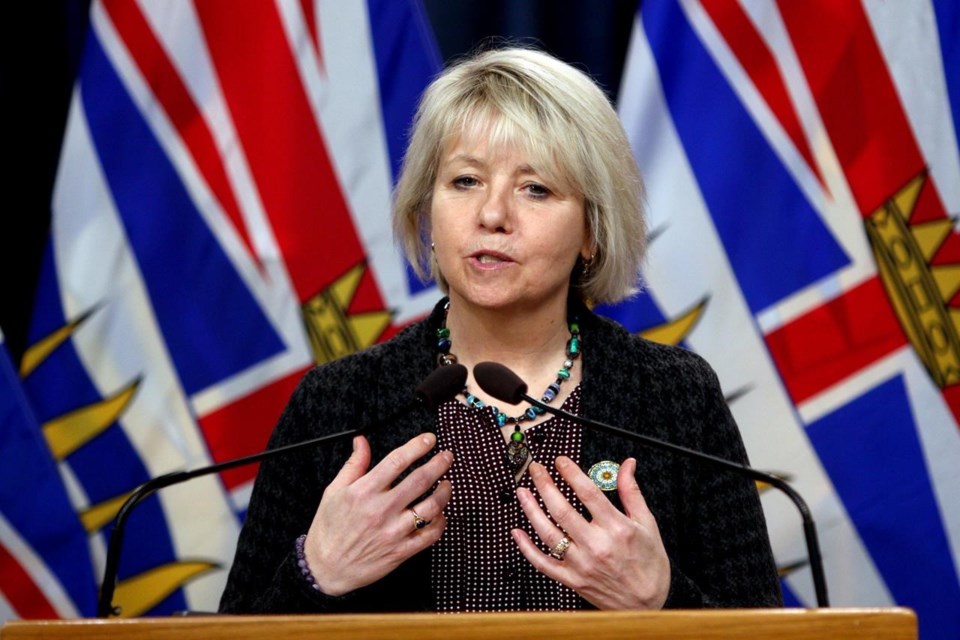VANCOUVER — A study co-authored by British Columbia's top doctor says at least 70 to 80 per cent of children and youth in Greater Vancouver and the Fraser Valley have been infected with COVID-19.
The study, which lists Dr. Bonnie Henry among 13 authors, says that in contrast, 60 to 70 per cent of adults aged 20 to 59 and about 40 per cent of those aged 60 and over have been infected.
The preprint study, which has not been peer-reviewed and was published on internet site medRxiv on Sept. 9, was met with criticism from an advocacy group whose spokesperson called it "extremely damning" of Henry's own policies and assurances to parents.
Dr. Lyne Filiatrault, who speaks for Protect Our Province BC, a group of health-care professionals, scientists and advocates who say they want evidence-based policies, said the study shows a major jump in infections occurred during the school year among children under 10.
"This is basically documenting how kids got infected and not taking responsibility for having misled parents that schools were safe," Filiatrault said Tuesday, adding that spread of the virus at daycares has been a source of concern for parents.
The study says surveillance reports of infections had understated the actual levels of infection by 92 times between March and August.
The study says the all-ages rate of infection in B.C's Lower Mainland rose from below 15 per cent to about 60 per cent between October last year and this August, as the highly infectious Omicron variant took hold.
It is based on 14,000 anonymized blood samples obtained between March 2020 and this August from a network of outpatient laboratories.
A spokesman with the Health Ministry said Henry was not expected to be available to comment on the study until Thursday during a news conference on COVID-19 modelling numbers.
Lead author Danuta Skowronski, an epidemiologist focusing on emerging respiratory pathogens at the BC Centre for Disease Control, was also not available.
Filiatrault said one of the most jarring aspects of the study is the authors' assertion that the levels of infection, combined with vaccination, have resulted in "more robust hybrid immunity."
She said there had been a lack of recognition about a heavy toll that long COVID was taking on some children as well as parents who may have been infected by youngsters due to the lack of early measures taken to mitigate spread in classrooms.
Filiatrault said Henry's assurances that COVID-19 spreads mainly in the community, not schools, did not match the reality of infections among kids, and now that had been backed up by the findings of the study.
"This study sets out, in point-blank form, what has been happening in this province, and it is, essentially, extremely damning," she said, adding that masks should be mandatory in schools.
"If we keep doing what we're doing, we are on a dangerous trajectory. What's happened is kids have gone home and infected their parents and their multi-generational families. And it's affecting the economy."
Kyenta Martins, who speaks for parent-led group Safe Schools Coalition B.C., said the study validates the worries parents have had about ventilation in schools
"A lot of people have been ringing the alarm bell. I am one of many, and I hate that term, but (we've been) gas-lit, by Henry and many public officials," she said.
"Information has been out there this whole time by different scientists, aerosol experts, studies, detailing what we've said, that schools are a place of transmission because you are in close contact."
Martins said she would like to know how school boards have spent federal money provided via the province to improve air quality, especially as COVID-19 cases are projected to rise this fall.
This report by The Canadian Press was first published Sept. 13, 2022.
Camille Bains, The Canadian Press



